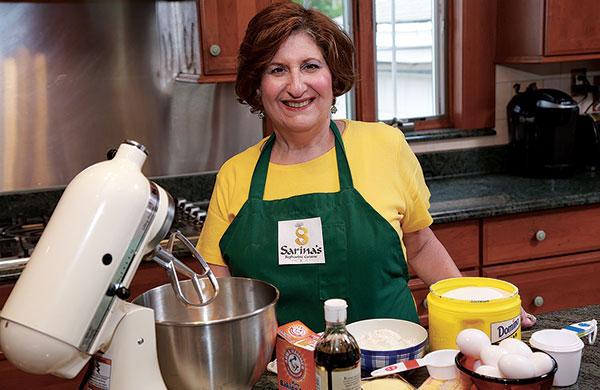 Different Jewish communities around the world prepare fresh, intensely flavorful recipes on Passover. Try some of these traditional dishes to spice up your own meals this Passover!
Different Jewish communities around the world prepare fresh, intensely flavorful recipes on Passover. Try some of these traditional dishes to spice up your own meals this Passover!
Haroset
Haroset, the paste that symbolizes the mortar our ancient Jewish ancestors used in slavery in ancient Egypt, is present on Seder tables the world over. Yet did you know that Jewish communities around the world prepare very different versions? Here is a delicious Turkish version:
• 8 oz pitted dates
• 8 oz raisins
• 2 cups peeled grated apples
• Orange juice or wine to moisten
• ½ cup finely chopped nuts.
 Grind (or chop in a processor or blender) all the fruits together. Moisten with juice or wine, and stir in nuts. Makes about 1 ½ cups.
Grind (or chop in a processor or blender) all the fruits together. Moisten with juice or wine, and stir in nuts. Makes about 1 ½ cups.
And here is the Syrian version:
• 3 lbs. pitted dates
• ½ cup sweet red wine
• 1 tsp. ground cinnamon (optional)
• 1 cup chopped walnuts (optional)
Put the dates in a medium saucepan with enough water to cover them. Bring to a boil, lower the heat, and simmer, stirring frequently, until the dates are soft.
Pass the date mixture through a strainer or rotary grater. A food processor may also be used, mixing in 3 to 4 batches for 30 seconds at a time. Refrigerate. Before serving, add the wine, cinnamon, and walnuts if desired, and mix thoroughly.Yield: 20 servings.
Hallaq
 Persian Jews make hallaq for their Seder tables instead of haroset. To symbolize the forty years in which the Jews wandered in the desert after leaving Egypt. Many cooks use a variety of each type of fruit (using several different color apples for instance, or different varieties of pears or raisins) so the number of ingredients in their Hallaq equals forty.
Persian Jews make hallaq for their Seder tables instead of haroset. To symbolize the forty years in which the Jews wandered in the desert after leaving Egypt. Many cooks use a variety of each type of fruit (using several different color apples for instance, or different varieties of pears or raisins) so the number of ingredients in their Hallaq equals forty.
• 1 cup almonds
• 1 cup roasted pistachios
• 1 cup walnuts
• 1 cup black raisins
• 1 cup golden raisins
• 1 cup pitted dates
• 2 teaspoons cinnamon
• 1 teaspoon ground ginger
• ½ teaspoon ground nutmeg
• 1 large apple, peeled, quartered and cored
• 1 large pear, peeled, quartered and cored
• 2 bananas, peeled
• 3 tablespoons cider vinegar
• ½ cup pomegranate juice
• ½ cup sweet kosher wine
In a large food processor, combine nuts, raisins, dates and spices. Pulse until nuts are coarsely chopped.
Add apple, pear and bananas, and pulse until coarse chop. Add vinegar, pomegranate juice, and wine. Pulse again, adding more vinegar, juice or wine to taste, as needed to make a coarse paste. Do not puree; mixture should retain some crunch. Makes 6 cups.
Matzo Balls
 Here’s an easy recipe for the classic Ashkenazi Passover accompaniment to soup. It’s traditional to serve matzo balls in chicken soup, though they’re delicious in vegetable soup too.
Here’s an easy recipe for the classic Ashkenazi Passover accompaniment to soup. It’s traditional to serve matzo balls in chicken soup, though they’re delicious in vegetable soup too.
• 2 quarts salted water
• 3 eggs
• ¼ cup oil or schmaltz
• Large dash salt and pepper
• 1 cup matzo meal
Bring salted water to a boil. While you are waiting for water to heat, mix matzo ball dough.
Combine eggs, oil, salt and pepper. Then mix in matzo meal, a little at a time, until the mixture is thickened but still sticky. Matzo meal absorbs lots of water, so wait 10 minutes to see if you need more. Aim for your batter to feel like modeling clay.
Wet your hands and roll batter into balls; for large balls, roll them into the size of a small egg. For smaller balls, aim for walnut-sized. Drop balls into the boiling water, then reduce heat and simmer for at least 30 minutes.
For a Polish version, add a couple drops of almond extract to matzo ball dough. If you do this, you might also want to form each ball around a single skinless almond; it is a fancy, nice touch. Makes approximately 12 small matzo balls.


